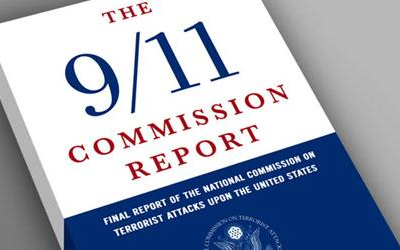On 15 July 2016, the Obama administration declassified and released 28 pages of a congressional inquiry into alleged Saudi government complicity in the 11 September 2001 attacks on the World Trade Center. Saudi officials responded stating that it was “one of the more peculiar ironies” that a nation that has done so much to combat terrorism finds itself “the object of ceaseless suspicion.”
American officials agree that since the 11 September attacks, Saudi Arabia has been aggressive in its efforts to eliminate terror networks within the Kingdom. However, it has done little to halt the flow of money and ideological support from within the Kingdom to terror groups outside of the country.
Saudi Arabia is connected with international terror groups through charity-funded religious schools and mosques. In 2009, then-Secretary of State Hillary Clinton stated that “donors in Saudi Arabia constitute the most significant source of funding to Sunni terrorist groups worldwide.” The US State Department estimates that since the 1970s, Saudi Arabia has invested more than $10 billion into these charitable religious education foundations. In addition, European Union intelligence analysts estimate that 15 to 20 percent of these donations have been diverted to al-Qaeda and other jihadi organizations. Since the rise of Daesh, whose ideology mirrors Wahhabism, Saudi citizens have continued to provide significant and un-monitored aid to religious schools around the world.
Saudi Arabia took steps to suppress terror networks on its home soil largely in response to the 2003 terror attacks in Riyadh, which killed 29 and injured 200. Yet, even as it has worked to suppress domestic terrorism, Saudi Arabia continues to support terrorism abroad through its government-sanctioned religious ideology. Although the US congressional September 11 Commission found no evidence that the Saudi government as an institution, or senior officials individually funded al-Qaeda, the lead author of the commission’s report stated that “Saudi Arabia has not stopped its interest in spreading extreme Wahhabism. ISIS… is a product of Saudi ideals, Saudi money and Saudi organizational support.” For example, there is one fatwa, still accessible in English on a government website and signed by the previous grand mufti, that states, “Whoever refuses to follow the straight path deserves to be killed or enslaved in order to establish justice, maintain security and peace and safeguard lives, honor and property.”
In the aftermath of the 2003 terrorist attacks in Riyadh—on their home soil—the Saudi government took steps to eliminate terrorism within the country. However, they have not taken steps to end the propagation of terrorist ideologies around the world. Charities funded by Saudi citizens and the government itself continue to promote an ideology which fuels al-Qaeda and Daesh. Ultimately, Saudi Arabia’s efforts to fight terrorism at home will be fruitless if it continues to finance and support terrorism and its hateful message abroad.
Tyler Pry is the Sheikh Nimr al-Nimr Advocacy Fellow at ADHRB





